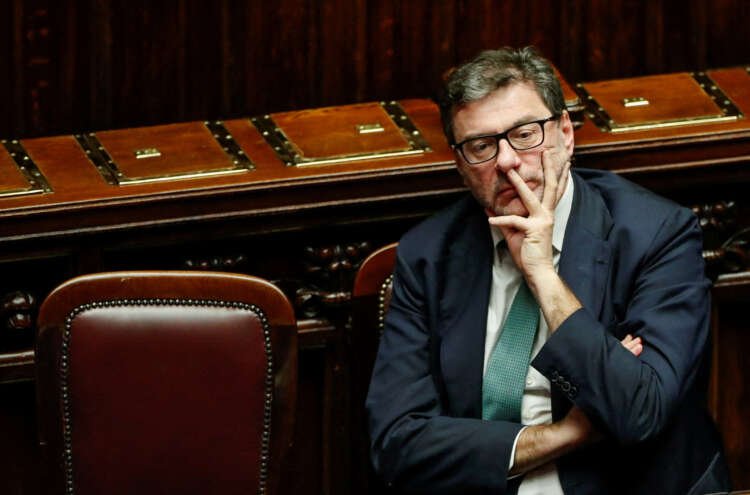Italy’s finances creak as budget deficit climbs in Q1


By Gavin Jones and Giuseppe Fonte
ROME (Reuters) – Italy’s budget deficit widened in the first quarter to 12.1% of gross domestic product (GDP) compared with 11.3% in the same period of 2022, data showed on Tuesday, getting public finances off to a bad start after a huge overshoot in 2022.
This year Giorgia Meloni’s government is targeting a deficit of 4.5% of GDP, almost halving the 8.0% ratio in 2022. Last year’s deficit was inflated by a ruling from the European Union’s (EU) statistics agency, Eurostat, which affected how member states can classify tax breaks for energy-saving building works.
The government’s 2022 target prior to the ruling was 5.6%, as Rome aimed to gradually shore up its finances following the COVID-19 pandemic.
The widening of the deficit in the first quarter was due to a 7.7% year-on-year increase in public spending which outstripped a 5.9% rise in revenues, statistics bureau ISTAT reported.
After the Eurostat ruling, Rome blocked the sale of tax credits for people greening their homes, expecting the move would prompt a sharp reduction in this year’s deficit.
But the state sector borrowing requirement (SSBR), a narrower aggregate than the public sector deficit, stood at 95 billion euros ($103.55 billion) at the end of June, up more than 50 billion euros on last year.
The SSBR has risen due to factors including the indexation of state pensions to rising inflation and delays in securing post-COVID recovery funds from the EU.
A windfall tax on energy companies is however expected to yield more than the 2.6 billion euros targeted, Economy Minister Giancarlo Giorgetti said in May, and Rome is confident a 19 billion euro tranche of the EU COVID-19 funds will arrive this year.
Last week, the Treasury confirmed its guidance around 2023’s bond issuance, putting it at the top end of its previously indicated range.
In April, Rome set a target for the 2023 SSBR of 5.5% of GDP, up from 3.5% in 2022, saying this would yield a public budget deficit of 4.5% of GDP.
($1 = 0.9174 euros)
(Editing by Emma Rumney)
Gross Domestic Product (GDP) is the total monetary value of all goods and services produced within a country's borders in a specific time period, indicating economic performance.
A windfall tax is a one-time tax imposed on companies that have benefited from unexpected profits, often due to external factors like economic changes.
Explore more articles in the Top Stories category











